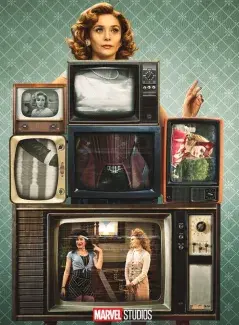
New Publication: Security and politics in superhero series/Sécurité et politique dans les séries de superhéros
Demoseries is delighted to announce the publication of a new volume in J. Vrin’s collection Philoséries, entitled "Sécurité et politique dans les séries de superhéros/Security and politics in superhero series", edited by Sylvie Allouche & Théo Touret-Dengreville.
Superheroes emerged in the United States at the end of the 1930s, in the context of the growing threat and eventual outbreak of the Second World War. The most striking figures of the era were created by DC Comics: Superman (1938), Batman (1939), Flash (1940), Green Lantern (1940), Wonder Woman (1941) and others. Comics soon joined the Greatest Generation's war effort against Nazism, and superheroes were a hit both with children on the home front and soldiers who fought abroad. Marvel Comics created Captain America in 1940, but it was in the 1960s that most of its most famous figures appeared under the pen of Stan Lee: the Hulk (1962), Thor (1962), Spider-Man (1962), Iron Man (1963), the X-Men (1963), Daredevil (1964), and so on.
Today, similar to other products produced within the broader American cultural landscape, superhero narratives reflect both the aftermath of the September 11th attacks and the flourishing of the television series format during the same period. This is particularly evident through the evolution of the two primary comic-book universes: the Marvel Cinematic Universe and the DC Cinematic Universe. Superhero characters, tasked with protecting their neighborhood (Daredevil), Earth (Watchmen), the galaxy (Guardians of the Galaxy), or even the entire universe's timeline (Loki), employ symbolic representations to critique ideologies and policies, unveil present realities, and explore moral ambiguities. From The Punisher, whose skull emblem is adopted by various armed forces worldwide, to Wonder Woman, symbolizing a new wave of feminist empowerment, to the superheroes of the satirical series The Boys, which lampoons corporate greed while being broadcast by Amazon, superheroes stand at the forefront of major security and political issues of our era, cementing their place in international popular culture.
This collection, comprising texts in both French and English, aims to illuminate these aspects not only from a philosophical perspective but also across other disciplinary fields (cinema, communication, law, Anglophone studies, history). It focuses on superhero series—both televised and cinematic—while connecting them to the transmedia universes that support them, especially the comics from which they originate.
Part I opens with an examination of distinct superheroic universes (DC or Marvel), starting with Sandra Laugier's analysis of the Wonder Woman character since her inception in 1941. Henri de Monvallier revisits the Spider-Man film trilogy from 2002-2007, and Clair Richards discusses the Watchmen series aired in 2019.
The subsequent four texts delve into the Marvel Cinematic Universe, inaugurated in 2008 with Iron Man. Daniel Koechlin offers a critical analysis of the ideological narratives present in Marvel series of the 2010s, while Théo Touret-Dengreville discusses how the film Black Panther (2018) represents a new, audacious perspective. Benjamin Campion and Stephen Mulhall offer two partially contrasting views on the series WandaVision (2021).
The final section of the collection provides analyses that adopt a broader perspective on superhero series but concentrate on specific themes: Lolita Broissiat examines the archetype of the "super-villain," François Allard-Huver investigates surveillance and security mechanisms, and Jean Baret discusses the portrayal of law in the superhero realm. Sylvie Allouche concludes by illustrating how superhero narratives, by engaging with security concerns, pave the way for reflections on the foundations of politics.
The volume is available in open access through J. Vrin open archive.